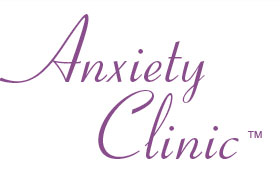Postnatal Depression Test
Check Your Score Using Our Quick Postnatal Depression Test...
Postnatal depression tests can be used to give you a reasonable indication of whether (and to what degree) you have postnatal depression. Our postnatal depression test only takes a few minutes but considers many elements and symptoms most commonly associated with both mild and severe postnatal depression. Whilst our postnatal depression test can give you a reasonable idea of how you're affected by postnatal depression - for a formal medical evaluation you should confirm your results with a GP or mental health professional.
How To Use The Postnatal Depression Test...

Our postnatal depression test is quick and simple to use. You will be asked a series of questions to which you'll answer either 'yes' or 'no' based upon your life and feelings over the previous two weeks. It's important to remember that the postnatal depression test works on how you've felt and coped over the previous fortnight - not just how you feel today.
All you need to do is make a mental note (or jot down on a piece of paper) how many times you answer 'yes'.
At the end of the test you simply add up the number of 'yes' answers you scored to come up with a grand total. Once you have your total we'll explain what your test score means in terms of postnatal depression and also the severity with which you're affected.
We'd just like to add that this test has been structured specifically for women. Postnatal depression affects men differently, so if you are a man and you suspect to may be suffering from postnatal depression we recommend you look at our page on Postnatal Depression In Men.
Let's continue with the test...
Take The Postnatal Depression Test
 Over the past two weeks...
Over the past two weeks...
- Have you experienced problems focusing on tasks?
- Have you struggled with concentration?
- Have you experienced self-doubt or not felt good enough as a parent?
- Have you felt pressurised to get everything right?
- Have you criticised yourself over minor mistakes or oversights?
- Have you felt guilty?
- Have you worried over minor things?
- Have you felt anxious?
- Have you been tearful or cried for no good reason?
- Have you felt as though you lacked self confidence?
- Have you experienced feelings of worthlessness?
- Have you felt restless or agitated?
- Have you noticed changes in your appetite?
- Have you noticed changes in your sleeping patterns?
- Have you experienced unpleasant intrusive thoughts?
- Have you 'over-thought' things over and over in your head?
- Have you struggled to rationalise or understand why you feel the way you do?
- Have you struggled to picture feeling better in the future?
- Have you wanted to somehow escape?
- Have you felt ongoing sadness or despair?
- Have you lost interest in the things you previously enjoyed?
- Have you felt tired or worn out most of the time?
- Have you considered (or used) drink or drugs to help you feel better?
- Have you experienced thoughts about harming yourself or your baby?
- Have you experienced suicidal thoughts?
That's the end of the postnatal depression test. Simply add up all the 'yes' answers you scored to give you a grand total. In the next section we'll explain what your test score means and how it relates in terms of the severity of your postnatal depression.
Your Postnatal Depression Test Score - What Does It Mean?

Many people are surprised at how many of the questions they relate to. This is because postnatal depression tends to intensify slowly and because you have all the responsibility of caring for your baby - you often don't notice the depression deepening. However, when you take a postnatal depression test (such as ours) it can act as a wake up call to tell you that things may have got out of hand.
If you scored less than 8 in the postnatal depression test - it's unlikely you have a problem. Scoring at this level could be down to the baby blues or simply as a result of the added pressure and responsibility of having a new baby in your life.
If you scored between 9 and 13 in the postnatal depression test - it's reasonable to assume you have a mild case of postnatal depression. Although you're on the lower end of the postnatal depression spectrum you could still benefit from either Counselling or preferably some Specialised Cognitive Behavioural Therapy.
If you scored between 14 and 19 in the postnatal depression test, you almost certainly have full blown postnatal depression. You are potentially at risk and so is your baby. Take steps to get help as soon as possible. Specialised Cognitive Behavioural Therapy is essential to address postnatal depression at this level. Medication 'may' be an option but will ONLY be of benefit of used in conjunction with CBT. Medication alone will not fix your postnatal depression and could pose a threat to your baby. For more detailed information on why medication doesn't fix postnatal depression and how it can harm your baby, look at our Postnatal Depression Treatment page.
If you scored 20 or more in the postnatal depression test you almost certainly have a severe case of postnatal depression. You and your baby are already at risk and immediate steps need to be taken in terms of you getting help. In severe cases of postnatal depression, medication can be of benefit but only when used in conjunction with Specialised Cognitive Behavioural Therapy. If you are already on medication it should seem obvious to you that if you scored so highly in the postnatal depression test whilst on meds - they're not enough on their own. Medication does not address the underlying problem causing and maintaining your postnatal depression.
So to sum up, if you scored between 9 and 13 - we can help you feel better although you' or your baby are unlikely to be in any serious danger. If you scored 14 or more, you definitely need our help. The higher your score is above 14... the more seriously you need our help. Don't put yourself or your baby in danger. Work with us. Get yourself sorted out. Get yourself feeling better. Be the best parent you can be.
You're welcome to call us for an informal chat. We'll discuss your case and answer your questions free of charge and without obligation. If you choose to work with us we'll make the arrangements and can normally make a start on your Specialised Cognitive Behavioural Therapy within two or three days of your initial contact. If you decide not to work with us, that's fine. We'll part company on good terms and you'll owe us nothing. What is important is that you at least talk to us:
Our number is 01782 855585 and you can reach us 11am to 9pm seven days a week.
If you'd like to know more about how we work, our no quibble zero-risk guarantee and our fixed rate fees - choose from the following options:
Face To Face Consultations at our Clinic (Stoke on Trent)




